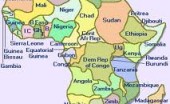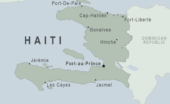Re Ian Bremmer 'Could third-party candidates upend the 2024 US election?' 3 April The current political movement in the USA…
Wednesday Night #1611
Written by Diana Thebaud Nicholson // January 16, 2013 // Wednesday Nights // 1 Comment
The news that Peter Trent‘s book on the Merger Delusion has been shortlisted for the Shaughnessy Cohen Political Writing Prize was greeted with enthusiasm. It was remarked that Westmount has benefited from the dedication, experience and intelligence of a series of mayors who fall in the very small minority of elected officials in the three levels of government who believe that the term public service is to be taken literally.
The Dreamliner
New technologies naturally involve glitches, but there is necessarily greater risk when that technology involves air travel. All the Boeing 787 Dreamliners have been grounded by the FAA following several successive incidents. The redesign involves less dependency on direct engine-generated energy and more on lithium-ion batteries. It is believed that the desirability of the fuel economy and advanced engineering will ultimately outweigh and overcome the growing pains of the first generation Dreamliner.
A well-reasoned article in the Atlantic How Bad Are the Dreamliner’s Problems? summarizes most of the points raised in WN’s discussion (led by two veteran Pratt & Whitney engineers), and points out that while
” … repeated battery fires in the 787, and the subsequent grounding of the fleet by the FAA and other airlines and authorities around the world, are obviously terrible news for Boeing. … so far the defect appears to be specific and correctable — a problem with the lithium-ion batteries Boeing has chosen for the plane — rather than some mysterious, unbounded threat that could undo the 787 project as a whole. [emphasis added]…
In addition to the carbon-fiber issue, the other “fundamental” question about the Dreamliner has been whether Boeing erred in outsourcing so much of the plane’s manufacturing and design. Michael Hiltzik of the Los Angeles Times went into this in depth in a celebrated article two years ago; I also address it in China Airborne. Even Boeing officials now concede that the company farmed out too much of the crucial work of making the plane. Thus it exposed itself to unexpected delays, problems in matching up parts and systems produced by different suppliers, design decisions that were out of its immediate control, and other challenges. Or, as Steven Lightfoot put it: Completely vertically integrated companies have gone the way of the dodo, and maybe that’s good, but one can go too far in the other direction, obviously.
The stock market is doing very well, especially the S&P-100 and the transportation sector. There appears to be diminished concern over the U.S. debt problems in the knowledge that similar problems in the past have always been surmounted if not completely resolved. The mountainous fiscal cliff has, as predicted in Wednesday Night, proven to be the proverbial molehill.
The Canadian market has not been doing as well as its U.S. counterpart, but certain stocks have in what has been termed a .selective market. The current bull market is in its fourth year. Despite recent problems, Europe has gained 30%. It is anticipated that the bull market will diminish as 2013 proceeds.
The world economy goes through cycles of boom, collapse and recovery. In 1974 it almost appeared that the world was going to end but by 1982 the economy recovered. Some will gain, others will lose; there was then and will be a huge redistribution of income.
It is predicted that the newly elected Québec government will have to face some difficult choices. It is anticipated that the difficulties will continue for the next couple of decades. Considering the short political lifespan of our elected representatives, it is unlikely that they will solve difficult economic problems. Especially: Entitlements are said to be on the way down, the prescription drug plan less generous, and a higher student dropout rate is anticipated. Those who hold these views see union leaders on the streets emphasizing demands that the government will find difficult and/or financially impossible to meet. The believers in this scenario predict two decades of difficult times
Oil
World oil price will continue to increase. There is an abundant supply of oil, but its price is a function of the difficulty of extraction. A far greater problem is said to be the limited supply of water in a growing world population. China has discovered a large source of petroleum in the China Sea as well as fracking, shipped to Vladivostok by rail.
PROLOGUE
Update:
- Maureen Farrow will be with us.
- We are delighted to share the announcement by The Writers’ Trust of Canada that Peter Trent’s book The Merger Delusion has been selected for the short list of five finalists for the $25,000 Shaughnessy Cohen Prize for Political Writing.
In case you haven’t noticed, John Curtin’s latest documentary, Serving the Royals (to be aired on CBC Doc Zone on Thursday at 9pm) has been getting a lot of hype. John writes We got the front cover story in The Star’s TV guide, Starweek and The Star is doing another Entertainment page cover story on the film on Thursday. The Gazette has something in the works, too. And a crew from Entertainment Tonight Canada was filming at my place this morning [Monday]. Nothing, it seems, sells like the Royals! More about the film and an interview with John: Arts-Culture #29- Canadian documentary: Serving the Royals
This past weekend marked the anniversaries of three highly different events.
The 150th anniversary of the inauguration of the London Tube – once again, the Brits know how to celebrate their achievements in style. The ever-present and effusive Boris Johnson paid tribute to the “engineering ingenuity of our Victorian forefathers” pointing out the revolutionary influence of the Underground on commerce and the development of the city. If only there were equivalent visionary ‘grands projets’ to improve our cities and economy today.
The third anniversary of the tragic events surrounding the earthquake in Haiti ( 12 January 2010) gives rise to many questions about how and where international aid has been (mis)spent and few – if any – recommendations about how to fix the problems (see Haiti: after the earthquake) – Canada’s solution, announced by Minister Fantino has been met with dismay.
In addition, Agnes Gruda reports in Monday’s La Presse that, further to the Harper government’s cutback of the CIDA budget, Harper introduit la foi chrétienne dans les programmes de l’ACDI giving increased funding to a number of NGOs whose mission is or includes proselytizing for the Christian faith.
The Wall Street Journal (thank you, Terry Jones) in a thorough critique Why Charity Hasn’t Done Much for Haiti raises another alarming dimension: “the increase in Islamic proselytizing. A credible source reports that there are now 14 formal mosques in the Port-au-Prince area and at least one “madrassa” religious school in the small city of Miragoane. Qatar has been pouring in money. … Given that some sects of Islam deny rights to women and teach intolerance, and even violence, toward nonbelievers, this religious proselytizing is worthy of attention.” Is the Harper government’s support for faith-based NGOs related to this development?
Sunday was the first anniversary of the costly and avoidable Costa Concordia disaster, in which 32 lives were lost. While accounts continue to vary about the circumstances leading up to the cruise ship running aground, it was obvious that there was a cavalier disregard for minimal safety precautions and seems likely that the hubris of one or two individuals played a large part.
Tour du globe
The situation in Mali has become more complicated – and fraught – as the French military have intervened, so far not an unqualified success. More troops are on their way, a number of West African countries are expected to send troops, and other allies of France are offering different forms of support, e.g. logistics. The BBC offers this analysis: France’s intervention in Mali is driven by the fear of a future threat. But will it increase the danger for Paris in the short term? The Washington Post adds How bad are the bad guys in Mali? The answer, in four powerful paragraphs
Syria – fighting and misery continue with no end in sight.Al Jazeera is a reliable source of up-to-date news, The Guardian is better on analysis. But the situation is bleak on both counts with close to 600,000 having fled the country.
Egypt– what will be the effect of the court-ordered retrial for Mubarak?
U.S. As we await the recommendations from Vice President Joe Biden’s task force, there is encouraging news that Most Americans back gun control, poll finds We are cheering the Chuck Hagel nomination and thoroughly enjoyed Colin Powell’s spirited endorsement on Meet The Press
Kimon has returned to Montreal, refreshed and ready to comment on the economy, globalization and global governance issues. One question we hope he will address is the whether he agrees with the latest edition of the World Economic Forum’s Global Risks report that growing income inequality is the biggest threat to the world’s economy.
Corruption
There have been several disturbing aviation news stories recently starting with the information featured in the second half of last week’s excellent Doc Zone episode Counterfeit Culture about the way in which counterfeit microchips have entered the supply chain for civilian and military aircraft, including the new Hercules C-130J purchased by the Canadian government (Fake parts in Hercules aircraft called a genuine risk). Meanwhile, The US Federal Aviation Administration (FAA) is conducting a comprehensive review of the design, manufacture and assembly of the Boeing 787 Dreamliner after recent ‘incidents’; priority attention will be paid to the electrical systems.
The documentary reminds us that wide-spread Corruption and its effect on every aspect of the economy, is one of the most crucial global governance issues, whether at the level of municipal contracts and permits (Montrealers well understand the ramifications), the disruption of judicial systems and the rule of law, or the prolongation of misery and poverty in an entire country. The Economist published a rather upbeat piece in mid-December The politics of corruption — Squeezing the sleazy that hints that some governments and international bodies are getting a handle on the problem, but the optimism may be over-blown.
The drama surrounding the on-again-off-again AFN meeting with Stephen Harper [and the Governor General] has hardly subsided with the news that in the wake of those meetings, national chief Shawn Atleo is taking medical leave, deputizing Roger Augustine to prepare for follow-up meetings. We admit to being somewhat confused by the outcomes of the meeting with the Prime Minister and whether in fact there will be any concrete results. One thing seems clear, revisions to the Omnibus Bill will be deferred in the hopes that everyone forgets about that aspect of the agenda. Another question: what will Idle No More do next and what will be the public reaction if the movement continues its disruptive actions? Already, authorities, e.g. in Calgary, are showing irritation.
Meantime, for a lighter moment check out some of these tweets: #Ottawapiskat Twitter Hashtag: What If Capital Were A Reserve?
We should also remind you of a few local issues that tend to get swept aside by our more global preoccupations.
We have not been paying much (any?) attention to the race for the PLQ Leadership, with so many other events drowning it out; how many watched the Candidates face off in first debate for Quebec Liberal leadership? Seems there wasn’t a great deal of dissent among the three and it was all very civil.
Who will explain why Martin Cauchon has decided to make a last-minute run for the Liberal Party of Canada leadership? Chantal Hébert doesn’t seem to think it’s a good idea and we would agree.
What is happening to the Lachine Hospital and how did we get into this situation? Beryl Wajsman has an excellent editorial coming out in this week’s Suburban and we are hopeful that Dr. Mark Roper can shed some light on the matter.




One Comment on "Wednesday Night #1611"
The following are recent postings in Flight International of hazards caused by transporting lithium ion batteries, particularly in 747s.
Fire brought down Asiana 747F in just 18min
26 September
Stricken Asiana freighter, transporting batteries and hazardous chemicals, failed to reach safety during attempt to divert
FAA slams MIT for lithium battery shipping error
02 September
An improperly labeled fiberboard box containing 33 lithium battery-powered electronic devices has landed the Massachusetts Institute of Technology in …
UPS 747 fire started in forward main deck: inquiry
04 April
Investigators have determined that the fire which brought down a UPS Boeing 747-400 freighter near Dubai probably started in the main cargo deck just
As we discussed yesterday evening, large aircraft projects are a delicate balance of in-house and outsourced design and manufacturing. The compromises of outsourcing are offset by the sharing of risk. Remember that Boeing nearly bankrupted itself to bring the 747 to market, Lockheed nearly went under producing the L1011 because of Rolls-Royce overreaching itself. Terminal 5 at London Heathrow descended into chaos because inadequate parking was provided for baggage handlers. The 787 is a great technical adventure – and all technical adventures are risky. As long as they have lots of orders they will solve the technical problems.
Tom
and Tony Deutsch adds: Similar problem: the new Berlin airport. It was days before the opening date last June that the airport was found to have major shortcomings, to the point that there is no new opening date set, and now there is talk of renovating the old Tegel airport, which was supposed to have been turned into a park last summer.